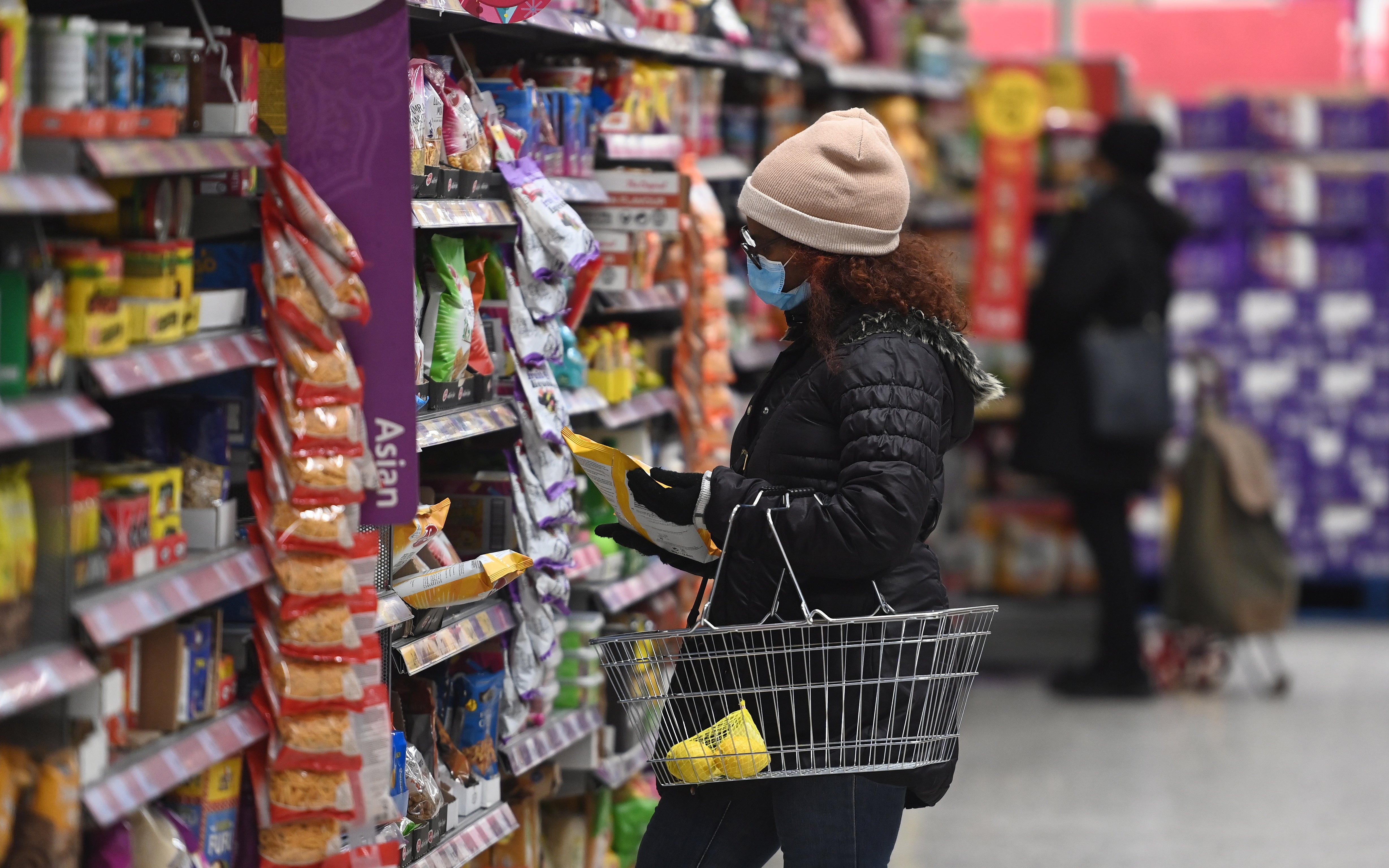The cost-of-living crisis will ultimately eclipse Partygate
Wage growth is undershooting inflation in the official figures – and this is just the start of the problems, writes James Moore


Partygate rumbles on and Boris Johnson is clinging on, with increasing desperation, but the biggest issue for him – or his eventual successor – will be the cost-of-living crisis.
The latest official figures showed job vacancies at record levels, and 29.5 million in work and on payrolls at the end of November, an increase of 409,000 on pre-pandemic levels. Obviously this is welcome.
The trouble is, they also showed wage rises falling below the rate of inflation. Earnings grew at an annual rate of 4.2 per cent in November, compared with an annual rate of inflation of 5.1 per cent. That’s a 0.9 per cent pay cut for the nation in real terms.
Now, the earnings figures had previously been running ahead of inflation, but that was largely because of the effect of the pandemic. They were flattered by people making more money through coming off furlough. But that effect is now unwinding and the picture that’s emerging is not a happy one.
Employers might be struggling to find staff but, with a few notable exceptions, they’re not willing to splash the cash to cope with their recruitment challenges. At least not yet.
The public sector is, obviously, being held back by chancellor Rishi Sunak’s parsimony. And the private sector by its fears for the future, not least of which is the end of cheap money. Expectations for a hike in interest rates are rising rapidly and, if they prove justified, they will force a major adjustment.
Companies are unlikely to push wages up until they have a better handle on their financing costs. If that means operating with fewer people than they need then that’s what they will do for as long as they can. Spell “burn out”.
The most widely publicised contributor to the cost-of-living crisis is, obviously, the domestic energy crisis, which has been fuelled (sorry) by surging wholesale gas prices. It’s also worth noting that oil prices have hit a seven-year high, which is being passed on to consumers at the pumps, adding further pressure.
The government is trying to find a way to mitigate the former, with the latest reports suggesting a move to lend suppliers money so they can reduce prices, a scheme favoured by large parts of the industry. It would allow regulator Ofgem to set a lower price cap, which is linked to what suppliers pay on the wholesale markets. The money would then be paid back when wholesale prices fall, making the scheme self-sustaining.
Trouble is, what if prices don’t fall? The cost to the taxpayer if they remain persistently high could be enormous. The move also means the cap is going to start serving as the default energy price for just about everyone, rather than as a ceiling consumers can improve upon by searching the market. Which creates problems of its own.
Still, it should damp down controversy about heat or eat, and struggling families spending a third of their budgets on fuel.
Trouble is, fuel is just one of the many contributors to inflation. Food prices are also rising. The higher interest rates the Bank of England will deploy in an attempt to cool price rises will further strain budgets as they feed through into mortgage rates, and inform the deals on offer. So will Boris Johnson’s planned hike to national insurance.
Economists fear the crisis will be with us for a good part of the year. Here’s the Resolution Foundation on the subject: “This latest wage squeeze – the third in little more than a decade following real wage falls after the financial crisis and EU referendum – is likely to get deeper in the coming months with inflation forecast to peak at 6 per cent in April, before it starts to ease in the second half of 2022.”
Johnson’s replacement will have that to confront, with only limited room to manoeuvre. Rishi Sunak, one of the contenders, borrowed heavily to get Britain through the pandemic. But his cost of borrowing is going to get much more expensive, just is at is for households and companies.
Distraction has long been a government-favoured tactic for confronting difficult problems. But bashing the BBC, fighting with the EU and suggesting setting royal navy destroyers on inflatable boats crossing the Channel haven’t noticeably diverted attention from Partygate.
Such right-wing “red meat” won’t do any better when it comes to the cost-of-living crisis, which people will see in pay packets and in rising bills every month. Carefully thought-through policymaking is what’s required to address a problem that will ultimately eclipse Partygate for the Conservative Party.
It is by no means clear that the current administration is capable of doing that, even with the robust labour market working in its favour. The comfort for those at the sharp end of the crisis is that it will hasten its end. But that’s not going to put food on the table.
Join our commenting forum
Join thought-provoking conversations, follow other Independent readers and see their replies
Comments
Bookmark popover
Removed from bookmarks